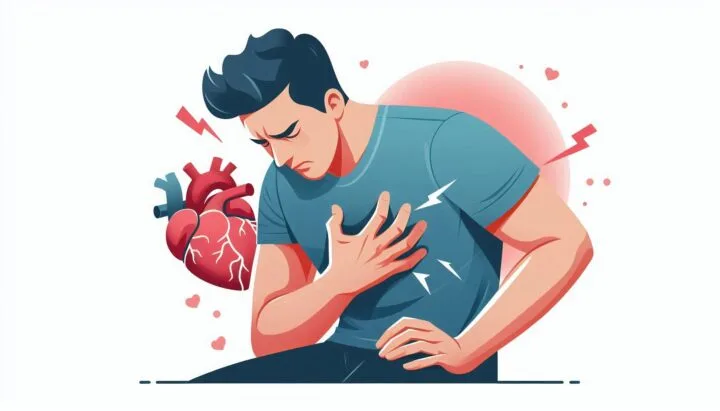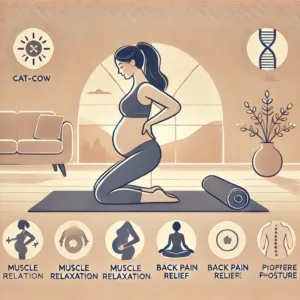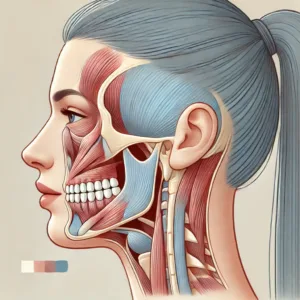Anxiety-Related Chest Pain: Understanding Causes and Management
Table of Contents

Anxiety-Related Chest Pain: Understanding Causes and Management
As a professor of psychology specializing in anxiety disorders, I’ve encountered numerous patients who experience chest pain as a symptom of their anxiety. This phenomenon, while distressing, is more common than many realize. In this article, we’ll examine the relationship between anxiety and chest pain, discuss its causes, and explore evidence-based strategies for management.
The Relationship Between Anxiety and Chest Pain
Anxiety and chest pain are often interconnected, with one potentially exacerbating the other. When an individual experiences anxiety, their body’s stress response is activated, leading to various physical symptoms, including chest discomfort.
Characteristics of Anxiety-Related Chest Pain
Anxiety-induced chest pain may present as:
- A sharp, stabbing sensation
- A persistent dull ache
- A feeling of tightness or pressure in the chest
- A burning sensation
It’s important to note that these sensations, while uncomfortable, are typically not indicative of a heart condition when caused by anxiety.
Physiological Mechanisms Behind Anxiety-Induced Chest Pain
When anxiety occurs, the body enters a state of heightened alertness, often referred to as the “fight or flight” response. This state triggers several physiological changes:
- Increased heart rate
- Rapid breathing
- Muscle tension, particularly in the chest area
These changes can collectively contribute to the sensation of chest pain.
The Role of Stress Hormones
Anxiety prompts the release of stress hormones such as adrenaline and cortisol. These hormones can cause:
- Increased heart rate and blood pressure
- Changes in breathing patterns
- Muscle tension
While these responses are adaptive in genuinely threatening situations, they can be problematic when triggered by anxiety in non-threatening contexts.
Common Symptoms Accompanying Anxiety-Related Chest Pain
Anxiety-induced chest pain rarely occurs in isolation. It’s often accompanied by other symptoms, including:
- Shortness of breath
- Dizziness or lightheadedness
- Excessive sweating
- Nausea or gastrointestinal discomfort
The presence of these additional symptoms can help differentiate anxiety-related chest pain from cardiac issues.
Identifying Triggers for Anxiety-Induced Chest Pain
Recognizing the situations or thoughts that precipitate anxiety-related chest pain is crucial for management. Common triggers include:
- Public speaking engagements
- Job interviews or work-related stress
- Interpersonal conflicts
- Financial concerns
Identifying these triggers allows for more targeted interventions and preventive strategies.
Breaking the Cycle of Anxiety and Chest Pain
One of the challenges with anxiety-related chest pain is its self-perpetuating nature. The experience of chest pain can increase anxiety, which in turn exacerbates the pain. To interrupt this cycle:
- Acknowledge the pain without catastrophizing
- Remind yourself of its likely source (anxiety)
- Engage in a calming activity or thought process
This approach can help reduce the intensity and duration of the symptoms.
Evidence-Based Strategies for Managing Anxiety-Related Chest Pain
Research has identified several effective strategies for managing anxiety and its associated chest pain:
1. Controlled Breathing Techniques
Practices such as diaphragmatic breathing can help regulate the body’s stress response. A simple technique to try:
- Inhale slowly for 4 seconds
- Hold the breath for 7 seconds
- Exhale slowly for 8 seconds
- Repeat as necessary
2. Progressive Muscle Relaxation
This technique involves systematically tensing and relaxing different muscle groups. It can be particularly effective for reducing muscle tension that contributes to chest pain.
3. Cognitive Restructuring
This involves identifying and challenging anxious thoughts that may be contributing to physical symptoms. It’s often a key component of Cognitive Behavioral Therapy (CBT).
When to Seek Professional Medical Advice
While anxiety-related chest pain is generally not dangerous, it’s crucial to seek medical attention if:
- The pain is severe or persistent
- You have a history of cardiovascular issues
- The pain is accompanied by other concerning symptoms such as arm or jaw pain
It’s always better to err on the side of caution when it comes to chest pain.
Differentiating Between Anxiety-Related and Cardiac Chest Pain
Distinguishing between anxiety-induced chest pain and cardiac issues can be challenging. However, there are some general differences:
Anxiety-Related Chest Pain:
- Often accompanied by other anxiety symptoms
- May be sharp and localized
- Can shift location within the chest
Cardiac-Related Chest Pain:
- Often feels like pressure or squeezing
- May radiate to the arms, jaw, or back
- Typically worsens with physical exertion
When in doubt, it’s essential to seek professional medical evaluation.
Long-Term Management of Anxiety and Associated Chest Pain
Managing anxiety-related chest pain often requires a multifaceted approach:
1. Psychotherapy
Cognitive Behavioral Therapy (CBT) has shown significant efficacy in treating anxiety disorders and associated physical symptoms.
2. Medication
In some cases, anti-anxiety medications or antidepressants may be prescribed under the guidance of a healthcare professional.
3. Lifestyle Modifications
Regular physical exercise, a balanced diet, and adequate sleep can contribute significantly to reducing anxiety and its physical manifestations.
Conclusion
Anxiety-related chest pain, while distressing, is a manageable condition. By understanding its causes, recognizing its symptoms, and employing evidence-based management strategies, individuals can significantly reduce its impact on their lives. Remember, if you’re experiencing persistent or severe chest pain, it’s crucial to seek professional medical evaluation to rule out any cardiac issues. With proper understanding and management, it’s possible to reduce the frequency and intensity of anxiety-induced chest pain and improve overall quality of life.
FAQs
- Can anxiety-related chest pain persist for extended periods?
While typically transient, anxiety-induced chest discomfort can last longer during periods of prolonged stress. If pain persists, consult a healthcare provider. - Is it possible to experience anxiety-related chest pain without feeling mentally anxious?
Yes, some individuals may experience physical symptoms of anxiety without conscious awareness of feeling anxious. This phenomenon is known as somatization. - Can dietary choices influence anxiety-related chest pain?
Certain substances like caffeine and alcohol can exacerbate anxiety symptoms, potentially including chest pain. Monitoring and adjusting intake may be beneficial. - How can one differentiate between anxiety-related chest pain and cardiac issues?
While there are general differences in presentation, definitive differentiation requires professional medical evaluation. When in doubt, seek immediate medical attention. - Can regular exercise help in reducing anxiety-related chest pain?
Yes, regular physical activity can help manage overall anxiety levels and potentially reduce associated physical symptoms. However, consult with a healthcare provider before starting any new exercise regimen, especially if you have cardiovascular concerns.












Post Comment